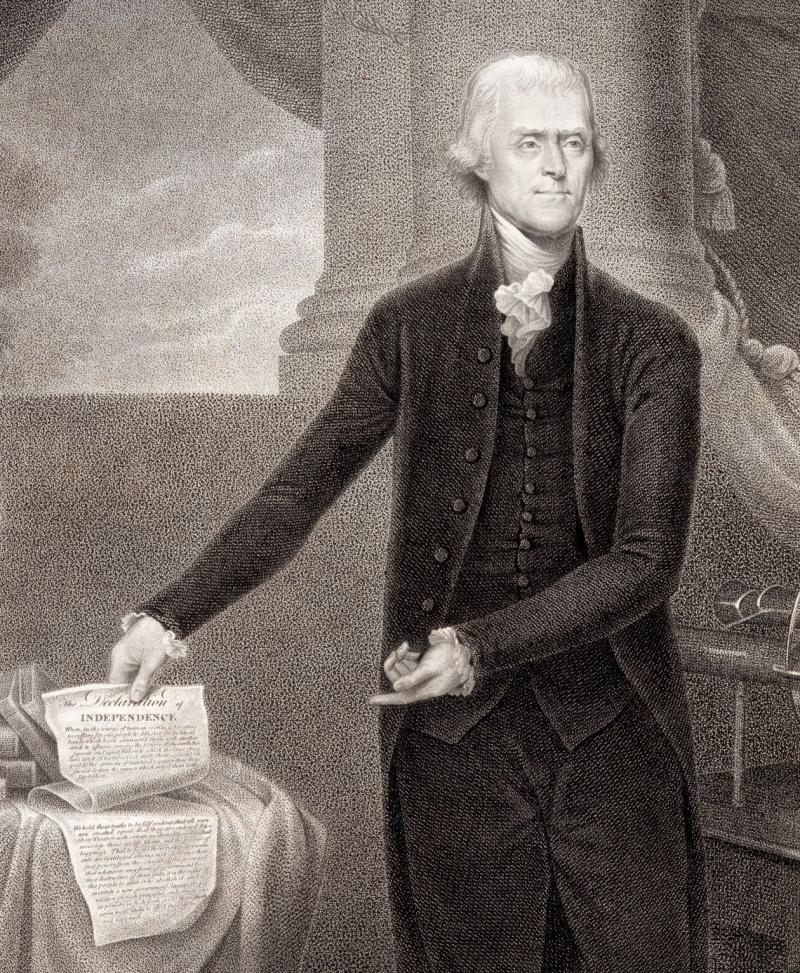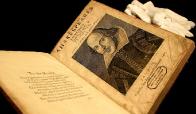'The Patriots' Review: Founders Divided
By: Jonathan W. Jordan (WSJ)



Fake news, partisan bickering and juvenile name-calling is nothing new in American politics. The election of 1800 was so savagely fought that it resulted in a deadly duel, a constitutional amendment and lifelong estrangement among the Founding Fathers. Whatever we might think of modern political discourse, present-day mud-slingers are relative amateurs when stacked against their 18th-century forebears.
Winston Groom, best known for his novel "Forrest Gump," devoted the second half of his literary career to American history. His earlier nonfiction works usually focused on events, like the Battle of New Orleans ("Patriotic Fire"), Stephen Kearny's Western adventures ("Kearny's March") and the American Civil War ("Shiloh, 1862," "Vicksburg, 1863")—though he also meandered into Alabama football ("The Crimson Tide"), World War I ("A Storm in Flanders") and presidential biography ("Ronald Reagan").
In his final decade, Groom's pen shifted to triangular relationships among military leaders. "The Aviators" covered the airplane's rise through the eyes of Eddie Rickenbacker, Jimmy Doolittle and Charles Lindbergh. "The Generals" looked at George Patton, Douglas MacArthur and George C. Marshall. "The Allies" went a step higher, painting an entertaining portrait of the Big Three—Roosevelt, Churchill and Stalin—as they crushed the Nazis and built a world that lasted half a century.
Continuing his study of political menages a trois, Groom steps back to the nation's birth with "The Patriots: Alexander Hamilton, Thomas Jefferson, John Adams, and the Making of America." Released two months after his death in September, "Patriots" is a synthesis of archived letters, popular biographies and colorful insights, with a nod or two to the Broadway hit "Hamilton."
Groom reprises the formula he deployed for "Generals" and "Allies," and begins with short biographies of his central characters. Hamilton's unlikely rise from the poverty of St. Croix will strike a familiar note to fans of "Hamilton." The Schuyler sisters, Lafayette, John Laurens and Maria Reynolds take their obligatory bows as Hamilton's journey from trading clerk to Treasury secretary plays out.
For all Hamilton’s latter-day fame, it is Adams whom Groom paints in the most vibrant colors, beginning with his first words on America’s second president: “John Adams was obnoxious. He said so himself. He talked too much and wrote that he wished he didn’t. He was irritable and wished he wasn’t.” But, Groom adds, “He was brilliant and well-read and energetic to a fault—‘a great-hearted, persevering man of uncommon ability and force. . . . He was honest and everyone knew it.’ ”
Jefferson, the polymath from Virginia, evokes Groom’s admiration. “Thomas Jefferson was a true Renaissance man,” he writes. “He was a student of philosophy and law, a scientist, inventor, architect, musician, and lover of fine things—a man of vision.” Yet the overleveraged planter, slaveowner and Southern aristocrat could also be “secretive, sly, and cunning” as he morphed into a canny politician after his return from France in 1789.
Backstories complete, Groom’s relationship story begins as George Washington’s first cabinet wrangles over the scope of the federal government, pitting Hamilton and Vice President Adams against Jefferson. “Hamilton and Jefferson shared a vision of a free, happy, peaceful, and prosperous country, but their definitions of these ideals diverged widely—as did their ideas for achieving them,” Groom explains. “Because they were grappling, often in the dark, with how to hold the nation together, they were terrified of making some mistake that would set the course of the newly formed United States on a poor or even fatal course. Like a band of castaways sailing into uncharted waters without a compass, they had only their theories, suppositions, intuitions, and prayers to guide them.”
Lacking empirical data to support their theories and suppositions, these intellectual giants often backed their positions with slander and demagoguery. The author of one of the world’s most beautiful documents spilled much ink describing Hamilton and his followers as “a stock-jobbing herd,” “corrupt squalor,” and “votaries of the Treasury.” The combative Hamilton responded in kind.
Adams and Jefferson tried to preserve their personal friendship, which dated back to their days in the Continental Congress. But the turbulent tides of the 1790s created an “almost total break between the two former friends,” says Groom. “Jefferson and Adams were now publicly identified as being diametric opposites in the debate to see what form of government would evolve for the United States of America.”
The press became a willing instrument in the slander wars. The Philadelphia Aurora called the nation’s second president “querulous, bald, blind, crippled, toothless Adams.” Pawns like Jefferson’s National Gazette, Hamilton’s Gazette of the United States and Jeffersonian pamphleteer Thomas Paine created a partisan circus that makes CNN and Fox News pundits look dry and academic by comparison.
The depths to which these Founding Fathers sank give the modern citizen ironic comfort in knowing that politics was no nobler in the republic’s formative years. “John Adams could harbor an abiding hate for enemies. But Jefferson and Hamilton attributed the basest motives to the other, which left no room for compromise or even civil disagreement,” Groom writes. “The arguments were reduced to innuendo, ridicule, slander, smearing, and dirty tricks.”
Tying together three famous leaders for a book-length narrative is the biggest challenge for a work like “Patriots.” The interplay of Hamilton, Jefferson and Adams is, however, much closer than that among the subjects of Groom’s earlier works. Roosevelt, Churchill and Stalin met as a group only twice (though their correspondence is extensive), while Patton, MacArthur and Marshall—professional colleagues, not friends—operated on entirely different levels.
The “Patriots” protagonists worked at close quarters and knew each other intimately. Jefferson served as Adams’s vice president; Hamilton and Jefferson worked out a backroom deal to shape the nation’s fiscal future. All three served in Washington’s cabinet, occasionally dining with each other.
As a biographer, Groom develops his Founding Brothers honestly and effectively. The relationship arc, by contrast, seems at times a bit disjointed, for the story is neither chronological nor exhaustive. While the dramatic Hamilton-Burr duel consumes 10 pages, Hamilton’s alleged intrigues to win Thomas Pinckney the 1796 election over Adams and Jefferson is ignored, and the story’s hopeful coda—Jefferson’s postpresidential reconciliation with Adams, developed through 15 years of warm letters, is dispatched in two sentences.
As with its three predecessors, “Patriots” breaks no new ground and offers no unique insights. Like Groom’s other works, it stands or falls on the author’s talent for weaving engaging stories for the general reader. Here is where Groom shines. “Hamilton, Jefferson, and Adams made the country what it is today, and their dust still sparkles like stars in the minds of their fellow Americans,” he concludes. Groom bequeathed his readers an entertaining take on the intellectual war that shaped our nation.
In Lin-Manuel Miranda’s lyrics, “Hamilton’s skill with a quill is undeniable.” “Patriots” shows that Winston Groom’s quill likewise remained sharp and bright as he sat down to compose his swan song.
—Mr. Jordan is the co-author, with Emily Anne Jordan, of “The War Queens: Extraordinary Women Who Ruled the Battlefield.”

 Article is LOCKED by moderator [Split Personality]
Article is LOCKED by moderator [Split Personality]
Tags
Who is online
105 visitors


What an amazing contrast! Such a small new nation produced such giants as compared to today's minnows.
The Book is
THE PATRIOTS
By Winston Groom
National Geographic, 415 pages
Please correct the url/link
and remove any advertising for the book, thanks